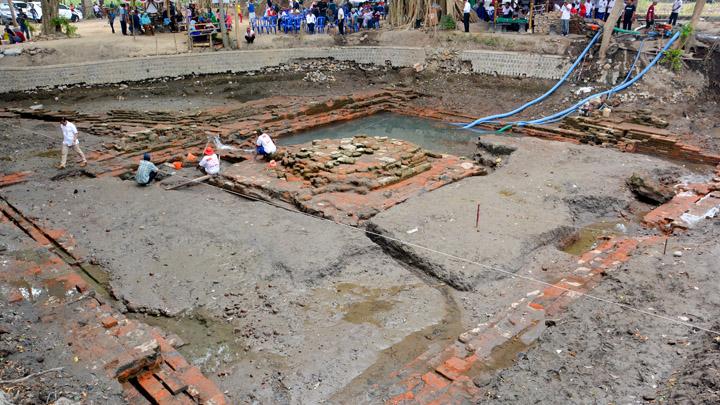
TEMPO.CO, Jakarta - Poaching and forest encroachment are threatening the maleo, a bird endemic to Sulawesi. The Alliance for Tompotika Conservation is working together with locals to protect the endangered species.
Agustian Laya spends a great deal of his time patrolling the forests and beaches of Taima village, South Sulawesi. He dedicates up to three weeks in one month to surveying these areas, home to the maleo (Macrocephalon maleo), a large terrestrial bird with black plumage and red iris.
The unique species is endemic to the island of Sulawesi and is listed as endangered on the IUCN (International Union for Conservation of Nature) red list, with only 8,000 to 10,000 birds left in the wild. "Even now, they're not found in all parts of Sulawesi, only in Central and North Sulawesi. They've already disappeared from other regions, such as Makassar, South Sulawesi," said Agus.
The 32-year-old began focusing on maleo conservation in 2006, when he joined the Alliance for Tompotika Conservation (AlTo). Prior, he was a member of the Niguana Nature Lovers Organization and would sometimes guide visitors who wished to see the maleo's nesting ground.
But local villagers would take the eggs. Oftentimes, when Agus brought people to the nesting ground, he would see that the area had already been tampered with and that the eggs were missing. Agus realized that the bird would soon go extinct if things continued as they were. "Usually people would take the eggs to be eaten or sold. But they weren't even expensive. Back then you could only get Rp7,000 for one egg," he said. His village's economy had prompted villagers to opt for the easy way to get food.
When he became a program officer at AlTo, Agus tried to work together with the villagers to protect the endemic bird. It was difficult at first. Eating maleo egg had been a decades-old practice in the Taima village. But many of the villagers had a change of heart.
They decided to form a village group with 82 members. The group would work in shifts to assist AlTo staff patrol forests and beaches, where nesting grounds are usually located. Each member works an eight-hour shift at the patrol posts. "They get Rp50,000 in a day for eight hours of patrolling. That's a lot more than what they can get from digging for eggs in a day," Agus said.
The incentive system is one of the ways to get people to help protect the maleo. AlTo also campaigned in the village and schools in the area. These days, villagers no longer disrupt maleo nesting grounds and often inform the alliance when they find the birds' eggs. But Agus worries that locals will continue to rely on the non-profit organization for extra income
"It's good they don't hunt for the eggs anymore, but now their mindset is more economy driven, so sometimes they would ask for more (money)," Agus said. "We are trying to make them understand that we have limitations, and that our purpose is simply to protect the birds."
AlTo was established in 2006 by Marcy Summers, a scientist with more than 13 years of experience in the environmental sector. She came to Indonesia in the early 2000s, when she was still working for the Nature Conservation. In addition to the United States, her home country, Summers had also worked in Papua New Guinea.
According to Noval Suling, a local who now works for AlTo, when Summers visited the Taima village in Tompotika for the first time, she realized the maleo was in danger of going extinct. Villagers often poached the eggs and disturbed the nesting grounds. Summers returned to Sulawesi after her first visit, this time bringing donors to help establish the non-profit organization.
Read more inspiring Outreach stories in Tempo English Weekly Magazine























